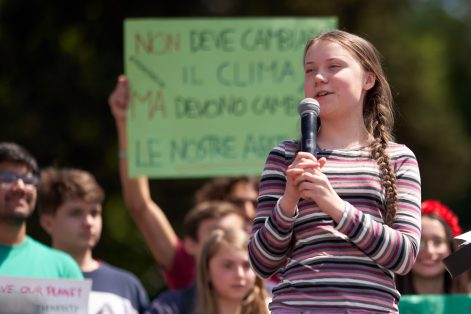The major climate change conference which puts Scotland on world stage

The eyes of the world will be on Scotland when one of the most important conferences in history takes place in Glasgow at the beginning of November. COP 26 looks likely to be the biggest major international discussion on climate change before the door closes forever on reversing some of its worst effects.
The conference in Glasgow will be remembered forever as the event which saved the world or condemned it to suffer from irreversible global heating.
It takes place after the Scottish Greens became the first Green party to be in government anywhere in the UK as they today announced a power sharing partnership with the SNP in the Scottish parliament. Two Green MSPs will be appointed as junior ministers.
Here are some of the big questions about the conference, what it will discuss and what it’s likely to achieve.
Who is attending?
There were originally 30,000 delegates expected to arrive in Glasgow for the 26th annual United Nations Climate Change Conference of the Parties, described as the most significant climate event since the 2015 Paris Agreement.

That 30,000 is now expected to reduce to around 20,000. Some events have been moved online due to the pandemic.
There are 196 ‘Parties’ to the United Nations Framework Convention on Climate Change (UNFCCC) who will be represented at Glasgow and will negotiate and make decisions at the event on action to reduce global warming and reverse some of its effects.
Key Covid travel restrictions will be relaxed for delegates, who have also been offered vaccines. World leaders expected to attend include US president Joe Biden and, if his health allows, Pope Francis. Climate change activist Greta Thunberg has also said she will attend, after initially refusing to go because the uneven roll out of global vaccinations would have left some countries unable to be represented. The offer of vaccinations to delegates prompted her change of heart.
Could COP26 really save the world?
There’s little doubt now that climate change is threatening the future of the planet. A landmark study recently warned of extreme heatwaves, droughts and floods because of global warming.
The results of that warming can be seen in western Germany, where about 200 people died in floods, the Henan province in central China, where at least 50 have died and about 400,000 have been evacuated after overwhelming downpours, western Canada and the US, where heatwaves have caused wildfires, and the Middle East, where drought afflicts communities from Algeria to Yemen. UN Secretary General António Guterres described the report as ‘’a code red for humanity’’.
The report suggests there is still time to avoid catastrophe … but it is running out fast. Mr Guterres said: ”There is no time for delay and no room for excuses. I count on government leaders and all stakeholders to ensure COP26 is a success.”
The report also confirms that the warming of the atmosphere, oceans and land has been the result of what it describes as ‘’human influence’’.
It remains to be seen if Scotland goes down in history as the host nation of an event which sees governments finally rise to the challenge.
Does Boris Johnson take climate change seriously?
The Prime Minister’s record on climate change is shockingly bad. His pledge to cut UK carbon emissions by 68% by 2030 compared with 1990 levels has been widely condemned as inadequate. Environmental campaigners have accused the government of failing to show a lead.
Campaigners Extinction Rebellion (XR) has said that from Monday it will stage protest events in London for two weeks, blocking roads and occupying buildings to disrupt the City and what XR calls “the root cause of the climate and ecological crisis – the political economy”.
Boris Johnson joked that 20 years ago people warned that “wind turbines couldn’t pull the skin off a rice pudding”. In fact he himself wrote that phrase in the Daily Telegraph
Boris Johnson has had difficulty in taking the climate change seriously. In December 2015 he said the unusually hot weather had nothing to do with global warming. He wrote in his Telegraph column: ‘’There may be all kinds of reasons why I was sweating at ping-pong [in December] – but they don’t include global warming.”
He recently joked that 20 years ago, people warned that “wind turbines couldn’t pull the skin off a rice pudding”. In fact he himself wrote that phrase in the Daily Telegraph in 2001.
More recently, in April he addressed world leaders at a virtual summit and made the bizarre statement: “It’s vital for all of us to show that this is not all about some expensive, politically correct, green act of bunny hugging.’’ And, of course, there was his now infamous ‘’wisecrack’’ about the ‘’green benefits’ of Margaret Thatcher’s attack on mining communities.
The Scottish government has set itself a legal target to cut greenhouse gas emissions to net zero by 2045. That is five years ahead of the date set for the UK as a whole
Is Scotland’s record any better?
Luckily it is. Scotland was the first country to declare a climate emergency, in April 2019. The Scottish government has set itself a legal target to cut greenhouse gas emissions to net zero by 2045. That is five years ahead of the date set for the UK as a whole.
Scotland produced enough electricity through renewables to meet 97% of its demand for electricity. That puts it into the top three European countries producing electricity from renewables, alongside Norway and Iceland.
It produces more than Sweden, Denmark and Germany and well ahead of the UK as a whole, which produces 35% of its energy from renewable sources.
The post The major climate change conference which puts Scotland on world stage appeared first on Believe In Scotland.


